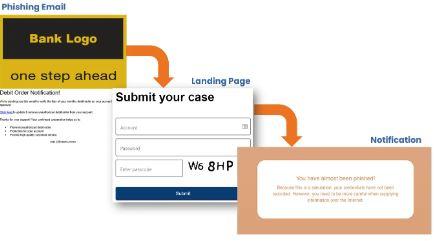
Welcome to the show everyone! Today I’m here with a special segment: ‘The Top 10 Tips for Protecting Yourself Online’. In today’s digital age, it’s more important than ever to stay safe online. From personal information theft, to identity fraud and cyberbullying – these are just some of the risks associated with being active on the internet. Fortunately, there are ways you can protect yourself from falling victim to any of these threats. So let’s get started shall we? Here are my top ten tips for protecting your safety and security online…
Use Strong Passwords
Welcome to the top 10 tips for protecting yourself online. Let’s start off with number one: use strong passwords! You want something long and complex, with a mix of upper and lowercase letters, numbers, and symbols. Don’t opt for easy-to-guess phrases like “password” or “123456789” either – those are way too obvious. And while you’re at it, avoid reusing your passwords across multiple sites; if someone cracks one password, they can now get into all of your accounts!
Another key tip is to enable two-factor authentication whenever possible. This adds an extra layer of security by requiring users to verify their identity on a second device before accessing their account. Plus, this prevents anyone from logging in even if they know your username and password. So don’t miss out – make sure that when available, two-factor authentication is turned on!
Enable Two-Factor Authentication
Step two in our countdown of the top 10 tips for protecting yourself online is enabling two-factor authentication. It’s an extra layer of security that can help keep your account secure, even if someone manages to get hold of your password. Let’s take a look at why this step should be part of your safety plan:
First off, it makes sure only you have access to your accounts – no one else will be able to log into them without jumping through some additional hoops. Here are three reasons why two-factor authentication works so well:
* It requires both something you know (your username and password) and something you have (a device such as a smartphone or tablet).
* It generates a unique code each time you log in, making it hard for hackers to guess their way in.
* And best of all, it ensures that if someone does steal your credentials they won’t be able to use them unless they also possess the device with the authenticator app installed.
So there we have it – two-factor authentication is a key tool in helping keep your digital life safe from harm. By taking this simple step today, you’ll sleep better tomorrow knowing that you’ve taken every precaution possible against would-be criminals lurking on the internet. Plus transitioning into the subsequent section about avoiding clicking on unfamiliar links just got easier!
Avoid Clicking On Unfamiliar Links – Phishing simulations
Alright, up next on our list of online safety tips is: clicking on unfamiliar links. Now this should be a no-brainer for most people out there but you’d be surprised at how many still take the bait. First off it’s important to know that if something looks too good to be true – it probably is! Don’t get fooled by random messages or emails offering free stuff because those are usually malicious attempts to steal your personal information.
Be extra careful when logging onto public Wi-Fi networks as well; criminals can use them to intercept data and gain access to your device. So always make sure you’re connected through a secure network before browsing or making any kind of financial transaction. And don’t forget to double check the website’s URL address before entering anything sensitive – only trust sites with ‘https’ prefixes!
Seems like common sense right? Well, let’s move on and look at how we can protect ourselves even further – time for us to talk about backing up our data.
Backup Your Data
Number four on the list of ways to protect yourself online is all about backups. Yup, if you want any chance of recovering your data after a cyber attack or virus, it’s essential that you back up what’s important. I’m talking photos, documents and anything else you don’t want to lose forever. It doesn’t have to be complicated – many cloud services provide automatic backup for a small fee. Just make sure your info is secure with strong passwords and encryption protocols!
So now you’ve got your data backed up safely, let’s talk about keeping things updated. Regular updating of software programs is one of the best defenses against hackers trying to access your information without permission. Don’t wait until something goes wrong before taking action – keep on top of everything from browsers, antivirus protection and operating systems so they’re always at the latest level of security. And that’ll help keep those nasty hackers at bay.
Regularly Update Your Software
Alright, coming in at number 5 on our list of the top 10 tips for protecting yourself online: regularly update your software. Now if you don’t keep your applications up-to-date, you’re putting yourself at risk of attack from hackers and cybercriminals. It’s not just about fixing bugs or improving performance; it’s also about getting important security patches that protect against viruses and malware. So make sure to check for updates every couple weeks, especially when there are new bug reports out – better safe than sorry!
That said, updating isn’t always enough. You’ll still need to take further steps to secure your data and privacy while browsing online. We’ve got a great tip comin’ up next that’ll help do just that…
Use A Secure Vpn
Alright, now that we’ve talked about updating your software regularly, let’s move on to the next tip: using a secure VPN. A Virtual Private Network (VPN) is like an extra layer of security for your online activity so you can browse and shop safely. It helps keep your internet traffic encrypted and away from prying eyes – meaning hackers won’t be able to see what kind of data you’re sending or receiving over the web. Plus, it’ll give you access to content that may not normally be available in your region. Here’s another important takeaway when it comes to protecting yourself online: be wary of scams!
Be Wary Of Online Scams
Alright, coming in at number 7 of the top 10 tips for protecting yourself online is this: be wary of online scams. These scammers have a lot of tricks up their sleeve to try and get your personal info or money. They may send you an email that looks like it’s from a legitimate source, offering something too good to be true—so don’t take the bait! Others might ask for your username and password so they can “verify” your identity—don’t do that either.
So remember: if it sounds too good to be true, it probably isn’t true. And never ever give out your passwords or other sensitive information unless you’re 100% sure who’s asking. Heed these warnings, folks, and continue on with the next tip… …to keep your online accounts secure.
Use A Firewall
Coming in at number 8 on our list of the top 10 tips for protecting yourself online is to use a firewall. A firewall can be an invaluable tool when it comes to keeping your data safe from malicious actors. It’s like having a security guard for your laptop or device that monitors all incoming and outgoing traffic, ensuring only legitimate activity gets through. Here are three key points about using a firewall:
• It screens out any suspicious network activities so you don’t have to worry about being hacked or scammed.
• You can customize settings according to your own needs, allowing you to control what kind of content goes into and out of your computer.
• Firewalls also help protect against viruses and malware by blocking certain sites from loading onto your machine.
Using a firewall is an easy way to stay protected while browsing online, but remember – no single solution can completely safeguard against every potential threat! So even if you have one in place, make sure you’re still practicing good cyber hygiene habits like updating passwords regularly and downloading software updates as soon as they become available. That wraps up this tip; check back next time for the ninth step towards securing yourself online!
Conclusion
Well, we’ve gone through the top 10 tips for protecting yourself online. With these ten simple steps, you can make sure that your data and personal information stay safe when using the internet.
First of all, remember to use strong passwords and enable two-factor authentication if possible. This way, it’s much harder for cyber criminals to get access to your accounts. Secondly, beware of clicking on unfamiliar links or downloading suspicious files as this could lead to malicious software being installed on your computer without your knowledge. Lastly, keep your software up-to-date by regularly installing security patches and updates, and use a secure VPN whenever possible.
So there you have it! I’m confident that with these ten tips in mind, you’ll be able to protect yourself online much more effectively – no matter how tech savvy you are!







